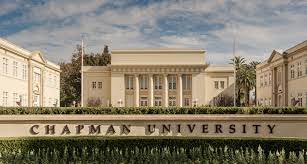16 paying jobs in public utilities that you may not have considered
Are you looking for paying jobs in public utilities? There are plenty of opportunities in this sector that you may not have considered. From engineering to customer service, public utilities offer a wide range of career options with competitive salaries. In this blog post, we’ll take a look at 16 of the top paying jobs in public utilities that could be the perfect fit for you.
1) Accountants
Accountants are essential to any public utility, as they are responsible for handling the financial and accounting activities. This includes creating and maintaining financial records, preparing financial statements, preparing budgets, preparing tax returns, analyzing financial data, and advising management on the best ways to use resources. Accountants also help public utilities plan for the future by providing accurate forecasts of revenues and expenses. Accountants must have strong math skills, good communication skills, and the ability to interpret financial data. The job requires a bachelor’s degree in accounting or a related field and certification from one of the accounting organizations. Most employers also require experience in the field.
2) Administrative Assistants
Administrative Assistants are responsible for the administrative support of public utilities. Their duties may include providing office support, managing customer service, taking customer calls and orders, preparing documents, maintaining databases, scheduling appointments, running errands, performing general clerical tasks, organizing information and performing other duties as assigned.

They may also be involved in preparing reports and presentations, coordinating meetings and events, and providing support to executives. The role of an Administrative Assistant is essential to ensure that public utilities run efficiently and effectively. To be successful in this role, one must have excellent organizational skills, be detail-oriented, have strong customer service skills, and be able to multitask in a fast-paced environment. With experience and a positive attitude, Administrative Assistants can become great assets to their respective public utilities.
3) Architects
Architects are responsible for designing and creating plans for various structures and buildings. They take into account factors like the environment, energy efficiency, and safety when designing a building. They need to have a good eye for design, excellent communication skills, and a deep understanding of construction techniques and materials. Architects must possess a professional degree in architecture and must be licensed in the state where they plan to practice.
Architects typically earn an average of $68,486 per year. The top 10% of architects earn an average salary of $117,220 per year. The demand for architects is projected to grow by 7% between 2019 and 2029, according to the Bureau of Labor Statistics. The job outlook for architects is favorable as the need for new structures continues to increase.
4) Civil Engineers
Civil engineers are responsible for the design, construction, and maintenance of a wide variety of public infrastructure projects, from roads and bridges to water systems and wastewater treatment plants. They must be knowledgeable in the principles of engineering, geology, mathematics, physics, and construction management. Civil engineers work with local, state, and federal governments to develop plans and regulations that protect public safety while still allowing economic development.
To become a civil engineer, you must have a bachelor’s degree in civil engineering or a related field. After graduating, many civil engineers obtain professional licensing or certifications through their state. With experience, civil engineers can pursue more advanced positions such as project manager or city engineer. The median salary for a civil engineer is $85,000 per year.
5) Construction Managers
Construction managers are essential to the successful development and execution of projects in public utilities. These professionals plan, coordinate, budget, and supervise construction projects from start to finish. Construction managers must have an eye for detail and be able to work in a collaborative environment with engineers, architects, and other professionals involved in the project.
The responsibilities of construction managers include creating project plans and timelines, hiring subcontractors and overseeing their work, ensuring safety regulations are being followed, and ensuring the project stays on budget. They also may be required to obtain permits and inspect the quality of materials used in the project. It is essential for construction managers to be familiar with applicable laws, building codes, and regulations.
Those interested in pursuing a career in construction management must have a bachelor’s degree in construction management, engineering, architecture, or a related field. Additionally, many employers prefer candidates with prior experience in the construction industry. This experience can come in the form of an apprenticeship or working as a laborer. Those interested in this role should be organized, possess excellent communication skills, and have an eye for detail.
6) Customer Service Representatives
Customer service representatives play an important role in public utilities, as they provide direct customer service to customers. They help answer questions, process payments, and troubleshoot customer issues. Customer service representatives must be knowledgeable about the company’s policies and procedures and be able to effectively communicate with customers. They should also have strong problem-solving skills and be comfortable using computer systems and software. Additionally, customer service representatives should possess good interpersonal skills, as they will be interacting with customers on a daily basis.
7) Electricians
Electricians are responsible for the installation, repair, and maintenance of electrical wiring, equipment, and systems. They are a vital part of public utility companies, as they are responsible for ensuring that all of the electrical systems are functioning correctly and safely. Electricians must have a thorough understanding of electrical codes and safety regulations, as well as the ability to read blueprints and diagrams.
Electricians usually work in teams, but may also work independently.
They are often required to work in hazardous environments and must wear protective gear when doing so. Electricians must be able to troubleshoot and problem solve in order to identify problems with electrical systems and repair them.
In addition to the technical skills required of electricians, excellent communication skills are a must. They must be able to communicate effectively with their team members, supervisors, and customers.
There is great potential for career advancement for electricians in public utility companies, as they often have the opportunity to move up in ranks and become supervisors or project managers. With experience, electricians may even pursue managerial roles within public utility companies.
8) Environmental Scientists
Environmental scientists work to protect the environment by researching the potential effects of proposed projects, studying air and water pollution, assessing the impact of human activities on ecosystems, and more. They must possess a deep understanding of environmental science, as well as be able to interpret scientific data, assess environmental hazards, and develop plans for remediation. Many environmental scientists are employed by public utilities, where they can help ensure that the company is following applicable regulations and taking steps to reduce its environmental impact. This job requires a bachelor’s degree in environmental science or a related field, as well as good communication skills and the ability to think critically.
9) General Maintenance and Repair Workers
General Maintenance and Repair Workers maintain and repair a variety of public utility systems and equipment. They perform basic repair and maintenance tasks on plumbing, electrical, HVAC (Heating, Ventilation, and Air Conditioning) systems, and appliances. They must have basic mechanical knowledge, as well as some general knowledge of public utilities such as electricity, water, and sewer systems.
In order to become a General Maintenance and Repair Worker, one must complete a minimum of a high school diploma or equivalent in order to gain employment. Training is also available through on-the-job experience, technical schools, apprenticeships, or trade schools. In addition, these workers need to have good problem-solving and troubleshooting skills in order to assess issues and determine the best course of action for repair.
General Maintenance and Repair Workers are essential in ensuring the proper operation and safety of public utility systems. They are often tasked with responding to emergency situations quickly and efficiently. A career in this field offers job security and stability, as well as competitive wages. It is an excellent choice for those who are interested in working with their hands and solving problems.
10) Heating, Ventilation, and Air Conditioning (HVAC) Mechanics and Installers
HVAC mechanics and installers work to install and repair heating, ventilation, and air conditioning systems. They typically must have at least a high school diploma or equivalent, although specialized training and/or certification can be beneficial. In some cases, an apprenticeship may be necessary.
In the public utility sector, HVAC mechanics and installers are responsible for installing and maintaining HVAC systems in homes and businesses owned by the utility. This could involve everything from ensuring that air flow is correct to keeping units up to date with the latest safety regulations. The job also entails providing preventative maintenance and responding to emergency situations.
Because HVAC mechanics and installers often work with dangerous materials and electricity, it’s important to make sure they are trained properly and certified in their field. A typical day on the job could involve going to customers’ homes or businesses to inspect, diagnose, and repair their HVAC systems. They must be knowledgeable about a variety of tools and techniques related to the job and be comfortable working in small spaces and at great heights.
This is a great job for those who are detail-oriented and enjoy troubleshooting problems. There is often room for career advancement in this field, so if you’re looking for a career with potential for growth and higher wages, this might be a good fit for you.
11) Industrial Engineers
Industrial engineers are responsible for improving the efficiency of production processes, and they must often work with various types of machinery in order to accomplish this. Industrial engineers may also be involved in developing new products and processes, as well as overseeing quality control.
In order to become an industrial engineer, you must have a bachelor’s degree in industrial engineering or a related field. Additionally, you must have strong problem-solving skills, knowledge of mechanical systems, and excellent communication skills.
Industrial engineers typically work in manufacturing plants, engineering companies, or research labs. They may also work on production lines or in corporate offices. The job outlook for industrial engineers is expected to grow at a rate of 8%, which is faster than the average for all occupations.
Overall, industrial engineers can expect to earn an average annual salary of around $87,000. With the right education and experience, industrial engineers have the potential to earn up to six figures. This makes industrial engineering one of the most lucrative career options within public utilities.
12) Lineworkers
Lineworkers are essential in the public utilities field, as they maintain and repair the electrical grid. They handle the installation, maintenance, and repair of power lines, transformers, and other electrical equipment. Lineworkers are often required to climb poles and towers or to work on energized equipment.
This job requires a great deal of physical stamina, since it involves working in all types of weather and for long hours. It also requires knowledge of safety procedures and the ability to use specialized tools and equipment. Lineworkers must also possess strong problem-solving skills and be able to work independently with minimal supervision. The median annual salary for lineworkers is $68,200, according to the Bureau of Labor Statistics.
13) Market Research Analysts
Market research analysts are a vital part of the public utilities industry, as they are responsible for researching and analyzing customer trends and preferences. They create surveys and collect data to help determine customer needs and how best to meet those needs. This data can be used by utilities to inform decisions related to product development,
marketing strategies, customer service, and more. Additionally, market research analysts can provide insights into emerging trends and potential new markets for public utility companies. These professionals typically have a bachelor’s degree in business or a related field. To be successful, market research analysts must possess strong analytical skills, have an understanding of customer behavior, and be able to interpret data accurately. They must also have excellent communication and problem-solving skills, as well as the ability to work independently. Market research analysts can expect to earn salaries of up to $70,000 per year.
14) Plumbers
Plumbers are responsible for the installation, repair and maintenance of pipes, fixtures and other plumbing equipment used for water distribution and waste water disposal in residential, commercial and industrial buildings. They also work to maintain heating and cooling systems as well as gas lines. Plumbers typically begin their career with a four-year apprenticeship program which is a combination of classroom instruction and on-the-job training. Upon completion of their apprenticeship program, plumbers are typically certified and licensed to work in the state in which they are employed.
Due to the vital role that plumbers play in the proper functioning of many buildings, most states have specific requirements for plumbing certifications. Many employers look for candidates who have experience working in plumbing, HVAC, or related fields.
In terms of salary, plumbers typically earn a median annual wage of around $50,000. However, this figure can vary based on a number of factors such as experience level, type of industry, and geographic location. Experienced plumbers may be able to command higher wages depending on the area in which they work.
15) Project Managers
Project Managers are responsible for overseeing the day-to-day operations of a project, from conception to completion. They manage teams, coordinate resources, and oversee budgets to ensure that projects stay on track and within scope. Project Managers in the public utilities industry must be able to manage complex projects involving electricity, gas, water and wastewater systems.
Public utility Project Managers typically have a bachelor’s degree in engineering or a related field, plus extensive experience in their specialty area. As a Project Manager, you will be responsible for developing schedules and budgets, monitoring progress and milestones, and providing regular reports to stakeholders. You will also be responsible for overseeing the safety and quality of the project, as well as its overall performance.
The salary of a Project Manager can vary depending on the size and scope of the project they are managing. In public utilities, Project Managers typically earn an average salary of $80,000 per year.
16) Sales Representatives
Sales Representatives are a key part of any public utility. They are responsible for marketing the products and services of their employer, and working to ensure customer satisfaction with the company’s offerings. They must possess excellent customer service and communication skills, as well as an ability to understand their target market.
In order to be successful in this role, Sales Representatives must be adept at identifying and responding to customer needs. They must also have a strong understanding of the products and services offered by their employer, as well as any competitors’ offerings. Additionally, Sales Representatives must have the ability to develop and execute marketing strategies that will help them meet their targets.
Sales Representatives typically work with other departments within the company in order to identify customer needs and develop solutions. They also serve as liaisons between customers and the company, ensuring that customers have their questions answered and that they are provided with high-quality customer service.
As with most roles within a public utility, Sales Representatives must have a strong knowledge of industry regulations and laws. This is especially important when it comes to selling products and services to customers, as it helps ensure that the company is compliant with all applicable regulations.
Overall, Sales Representatives are an essential part of any public utility. They play a key role in helping to promote the company’s products and services, while also providing high-quality customer service. With their knowledge of the industry and customer needs, they are essential in helping public utilities remain competitive in today’s market.
A Guide to Crafting the Best Letter of Offer for an Internship
Best healthcare assistant jobs in usa for foreigners 2023
Niger Delta Development Commission scholarships (NDDC) 2022






